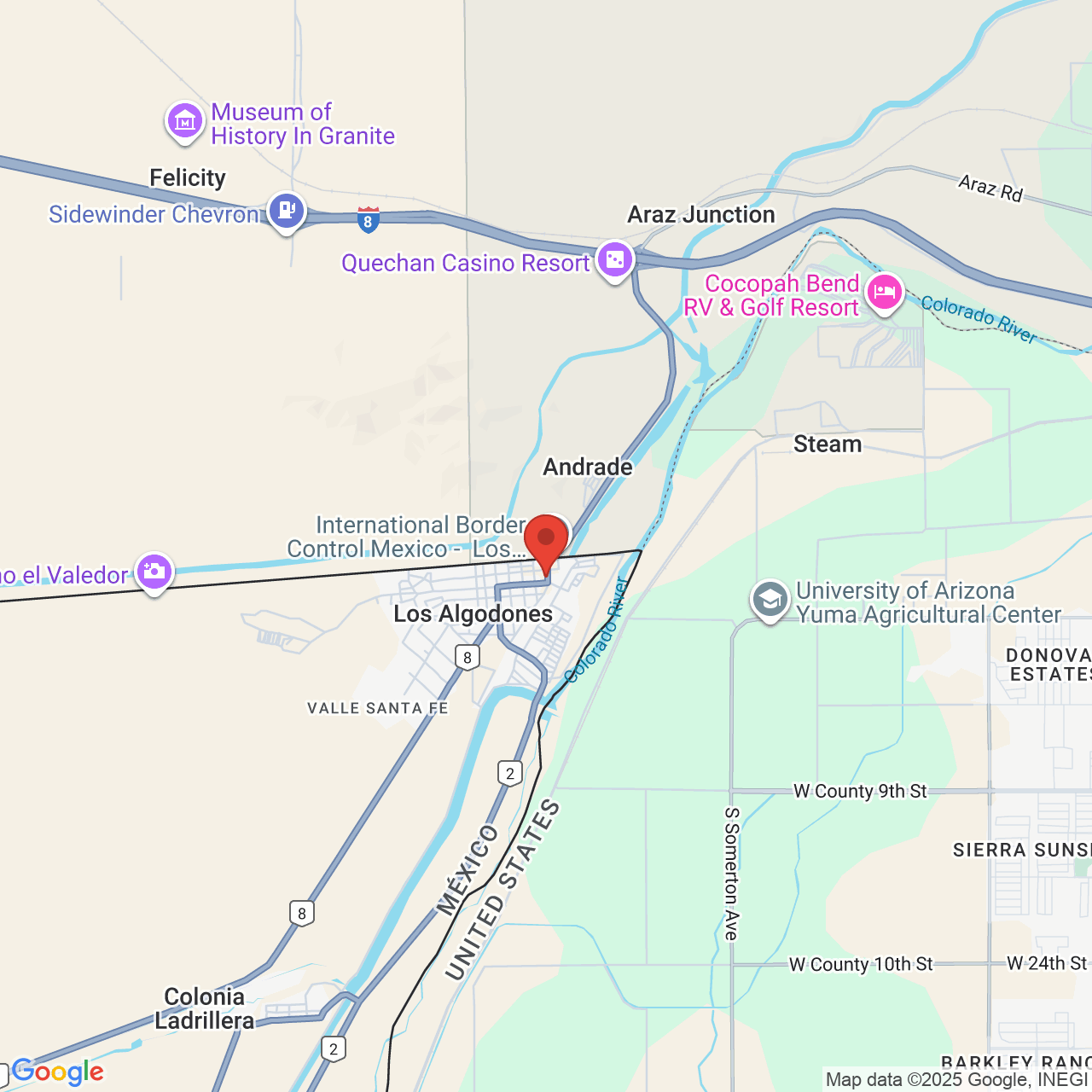Laser Dentistry in Los Algodones
What is laser dentistry?
Laser dentistry is the use of lasers to treat a number of different dental conditions. It became commercially used in clinical dental practice for procedures involving tooth tissue in 1989. We offer the best Laser Dentistry in Los Algodones.
Laser dentistry potentially offers a more comfortable treatment option for a number of dental procedures involving hard or soft tissue compared to drills and other non-laser tools.
LASER stands for “light amplification by the stimulated emission of radiation.” The instrument creates light energy in a very narrow and focused beam. This laser light produces a reaction when it hits tissue, allowing it to remove or shape the tissue.
Laser dentistry is used in a variety of procedures, including:
treating hypersensitivity
treating tooth decay
treating gum disease
whitening teeth
Lasers can make dental treatments more efficient, cost effective, and comfortable. The Food and Drug Administration (FDA) has approved laser dentistry as a treatment option for several dental conditions.
It’s worth noting that the American Dental Association (ADA) currently has yet to do so, though they are hopeful about the potential of the field.
How are laser treatments performed?
The two main types of procedures used for laser dentistry are hard tissue and soft tissue procedures. Hard tissue refers to the teeth, and soft tissue refers to the gums.
Common hard tissue procedures include:
Cavity detection. Lasers can detect cavities early by finding evidence of tooth decay.
Tooth preparations and dental fillings. Local anesthesia and traditional drills are often not needed with laser treatments. Lasers can kill bacteria in a cavity, which can aid in the long-term health of a tooth.
Treating tooth sensitivity. Teeth that have sensitivity to hot and cold can be treated with dental lasers that seal tubules on the tooth’s root.
Common soft tissue procedures include:
Treating a “gummy smile.” Lasers are used to reshape gum tissue associated with “gummy smile,” in which the gums’ length covers much of the tooth.
Crown lengthening. This procedure reshapes both gum tissue and bone for healthier tooth structure, which helps with placing restorations on the teeth.
Treating tongue frenulum attachment. Those with a thick or tight frenulum (the fold of skin under the front part of tongue that anchors to the mouth floor) may benefit from a laser frenectomy. This treatment helps children whose restricted frenulum causes them to be tongue-tied, have difficulty breastfeeding, or have a speech impediment.
Removing soft tissue folds. Lasers can remove soft tissue folds from ill-fitting dentures without pain or sutures.
Other laser procedures include:
Viewing tissues. Optical coherence tomography allows a doctor to safely see inside a tooth or gum tissue.
Removing benign tumors. Lasers can remove tumors from the palate, gums, and sides of the lips and cheeks through a pain- and suture-free method.
Treating obstructive sleep apnea. Lasers can reshape the throat and relieve associated breathing problems when sleep apnea is caused by tissue overgrowth in the throat.
TMJ (temporomandibular joint) treatment. Lasers can help reduce pain and inflammation in the joint.
Nerve regeneration. Lasers can help regenerate damaged blood vessels, nerves, and scars.
Treating cold sores. Lasers can minimize healing time and reduce pain from cold sores.
Teeth whitening. Lasers speed up the bleaching process during teeth-whitening sessions.
Laser treatments such as these can vary in price, depending on the procedure being done and the laser equipment used. Compared to non-laser treatment, they may be less expensive because the laser treatment is usually completed in fewer sessions. Additionally, dental insurance usually determines reimbursement costs based on the treatment itself and not on what method is used.
Therefore, your compensation is likely to be the same as it would with drilling and other procedures. However, it’s always important to ask about your specific policy beforehand to get the most accurate information.
What types of lasers are used?
Dental professionals use either hard tissue or soft tissue lasers, depending on the treatment. Some will use both types if the treatment allows.
Hard tissue lasers can cut through tooth structure. Their wavelengths are absorbed through the combination of water and a specific mineral found in teeth. These lasers are most often used to prep or shape teeth for composite bonding, to repair dental fillings that have worn down, and to remove some tooth structure.
Benefits of using laser dentistry over other methods
There is potentially a decreased need for sutures with soft tissue lasers. Bleeding is minimized in treated soft tissues, as the laser promotes blood clotting.
With some procedures, anesthesia is unnecessary.
The chance for bacterial infections is lower because the laser sterilizes the area.
Wounds can heal faster, and it’s possible for tissue to regenerate.
The procedures may involve less damage to the surrounding tissues.
Soft tissue lasers can be absorbed through water and hemoglobin. Hemoglobin is a protein found in red blood cells.
These lasers are used to treat periodontitis, including killing bacteria and activating tissue regrowth.
Soft tissue lasers seal nerve endings and blood vessels while they penetrate the tissue. For this reason, many experience almost no pain after laser treatment. The lasers also promote faster healing of the tissue.
Contact St. Thomas Los Algodones Dentist for more information on Laser Dentistry in Los Algodones. Call us at (928) 554 2060 or book your appointment online now!




